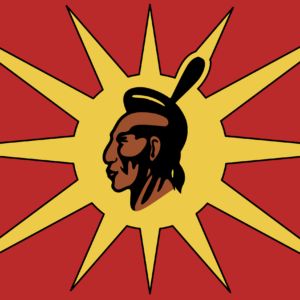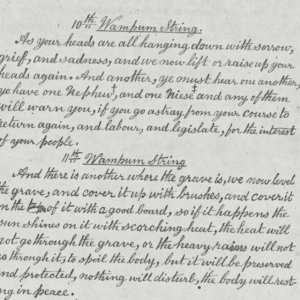
International Women’s Day falls on March 8, which for us, was last Sunday. It is a day celebrating the social, economic, cultural and political achievements of women globally.
The achievements are vast, but did you know that the women rights movement that began in the 19th century was fronted by Haudenosaunee women?
Elizabeth Cady Stanton, Matilda Joslyn Gage, and Lucretia Mott – who were all pioneers of the women’s rights movement – drew inspiration for their vision of women as full participants in American society from the matrilineal culture of the Haudenosaunee.
Sally Roesch Wagner, a nationally renowned historian of the feminist movement and executive director of the Gage Foundation (named for Matilda Joslyn Gage) in Fayetteville, N.Y., is the author of Sisters in Spirit: Haudenosaunee (Iroquois) Influence on Early American Feminists (Native Voices, 2001). In her book and several essays, Wagner explores how close association with women of the Six Nations inspired suffragists with the vision of a society in which women had the same rights and responsibilities as men.
“I could not fathom how they dared to dream their revolutionary dream,” Wagner wrote. “Whatever made them think that human harmony – based on the perfect equality of all people, with women absolute sovereigns of their lives – was an achievable goal?”
The answer, she wrote, was right in front of her, in the suffragists’ own words. It just took Wagner a while to see it: “They caught a glimpse of the possibility of freedom because they knew women who lived liberated lives, women who had always possessed rights beyond their wildest imagination – [Haudenosaunee] women.”
In a speech to the International Council of Women in 1888, suffragette and anthropologist, Alice Fletcher said “I crave for my Indian sisters, your help, your patience, and your unfailing labours, to hasten the day when the laws of the land shall know neither male nor female, but grant to all equal rights and equal justice.”
In the 131 years following Alice Fletcher’s speech, women in general have gained a great many rights. However with the impacts of colonialism and patriarchy, Haudenosaunee women have since lost many inherent rights, and there remains an upward battle for equal justice.
While women have gained increasing social equality, the work of the suffragettes is far from over. Yes, women have been able to vote since 1920, and women have served in Congress since 1917; but, women only make up 102 of the 433 seats in the House of Representatives or 23.56 percent and 25 of the 100 seats in the Senate or 25 percent, despite making up 50 percent of the U.S. population. The United States currently ranks 78th in the Inter-Parliamentary Union’s global rankings of gender parity in national legislatures, below 10 other G20 countries, no woman has been elected President, a total of 44 women have served as governors in the U.S. and currently only nine are in office.
And the society built on gender equality, the basis for the Triumvirate’s goals has been largely left behind. In 2018, Deb Haaland (NM-01) and Sharice Davids (KS-03) made history and were the first Native American women elected to the House of Representatives, out of a total of eighteen Native Americans to serve in the House; to date only four Native Americans have served in the Senate, none of whom were women. Despite many Native American nations historically having a social organization based on gender equality, Native women’s representation in U.S. politics is lagging behind. The same can be said in Canada, as only Jody Wilson-Raybould comes to mind.
In a speech to the International Council of Women in 1888, suffragette and anthropologist, Alice Fletcher said “I crave for my Indian sisters, your help, your patience, and your unfailing labors, to hasten the day when the laws of the land shall know neither male nor female, but grant to all equal rights and equal justice.” In the 131 years following Alice Fletcher’s speech, women in general have gained a great many rights, but the Haudenosaunee women have lost many of theirs, and there remains an upward battle for equal justice. At what point do we stop asking for people’s patience and demand equality instead?
As well, written in Greater Rights of Indian Women In 1888, Fletcher, a noted white ethnographer, addressed the International Council of Women and spoke of the greater rights of American Indian women, pointing out that those women also realized they would lose many of their rights if they became U.S. citizens. Fletcher said one Indian woman told her:
“As an Indian woman, I was free. I owned my home, my person, the work of my own hands, and my children should never forget me. I was better as an Indian woman than under white law.”
That same matriarchal power is still present in various ways and it is enough to say that Haudenosaunee women are still celebrated throughout the year, not just on a single day.






